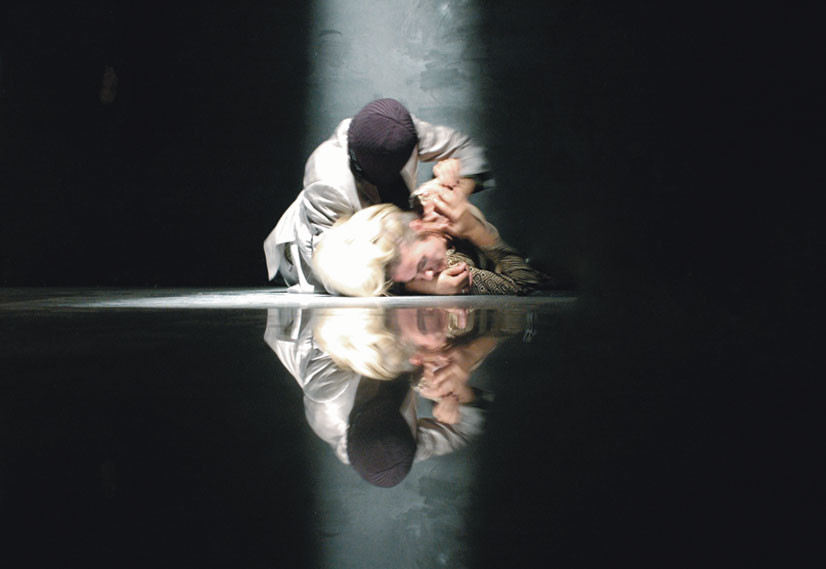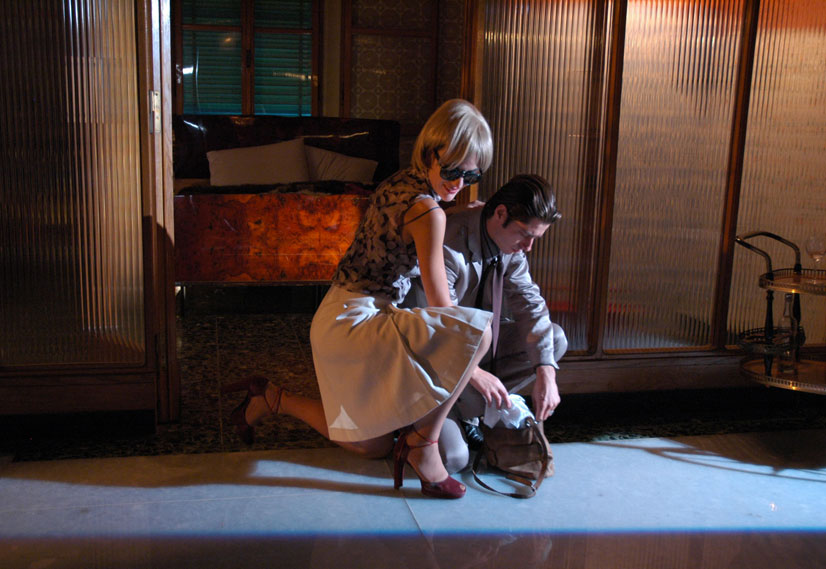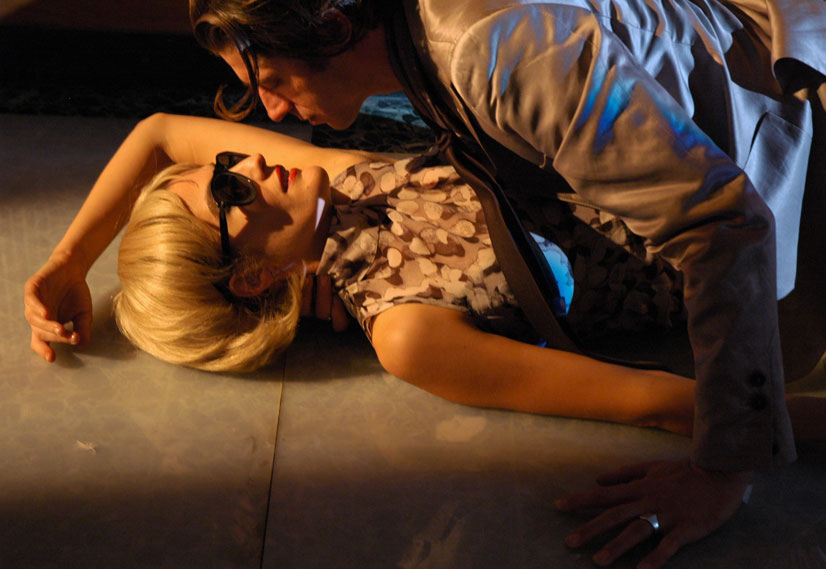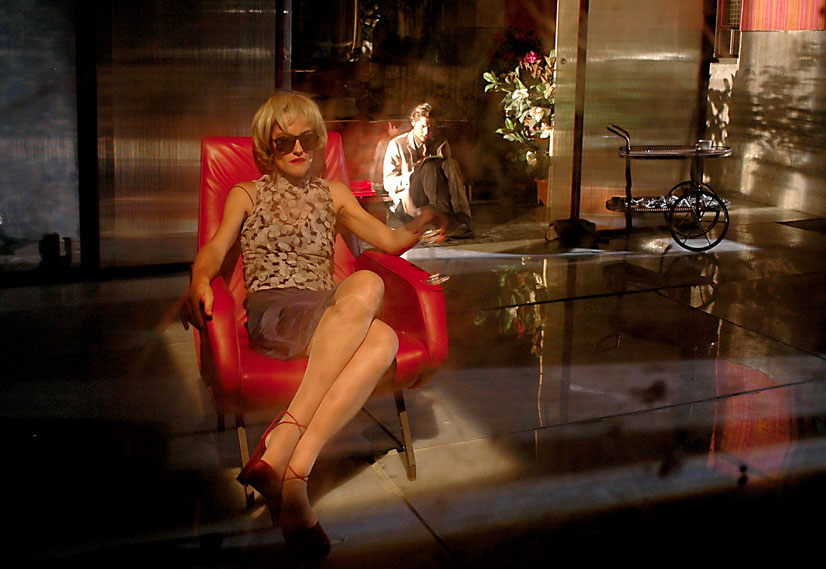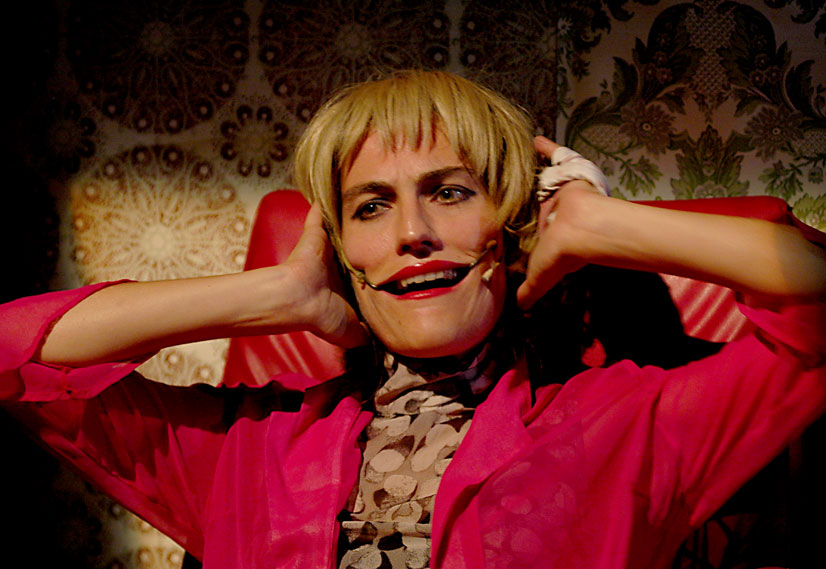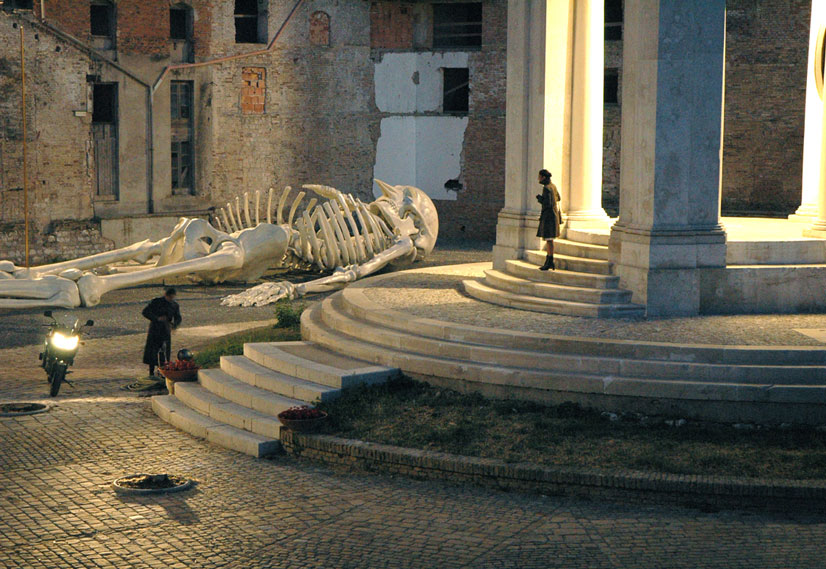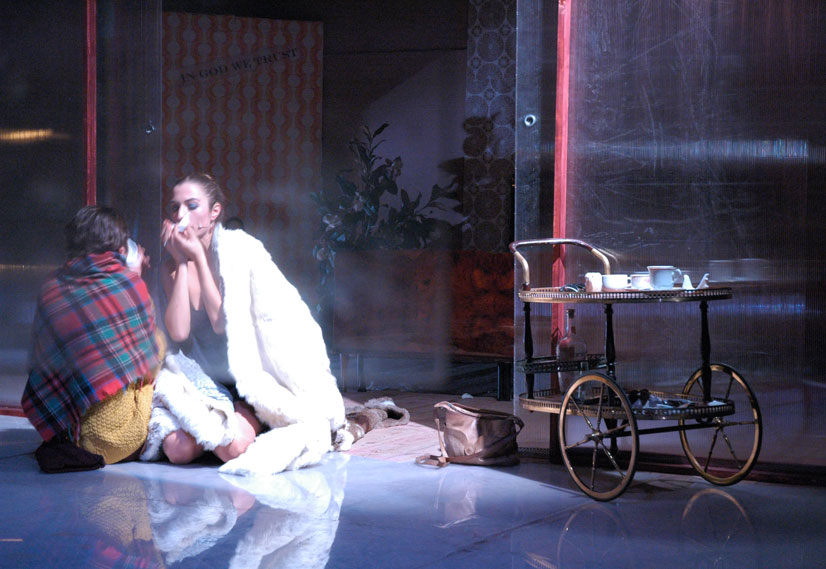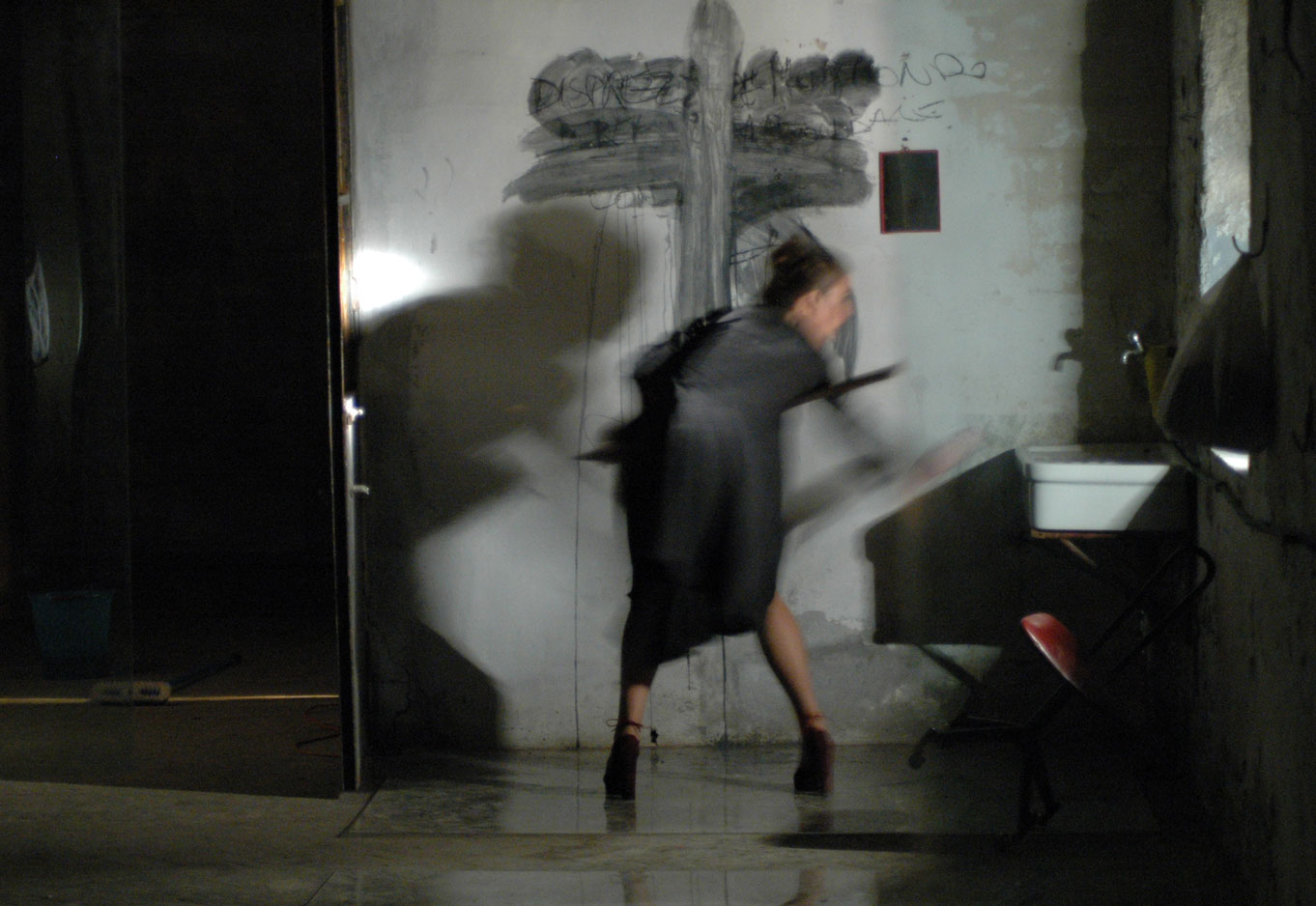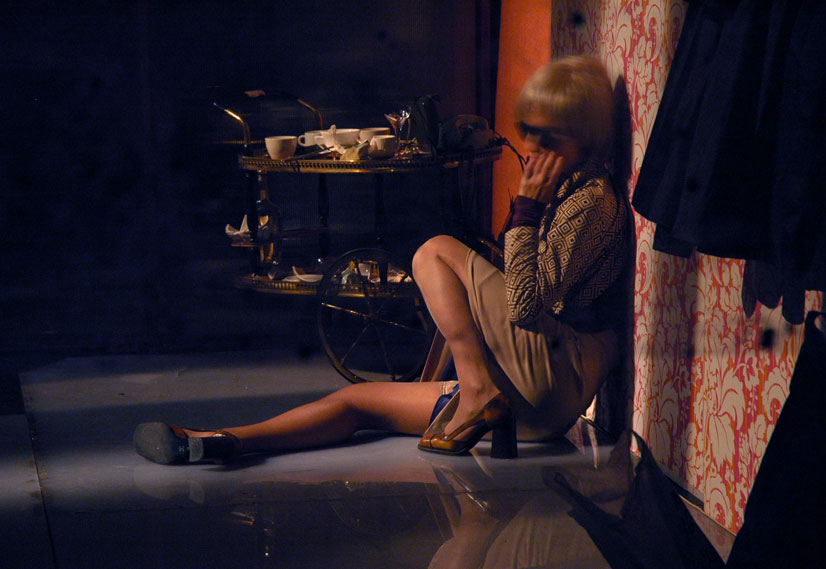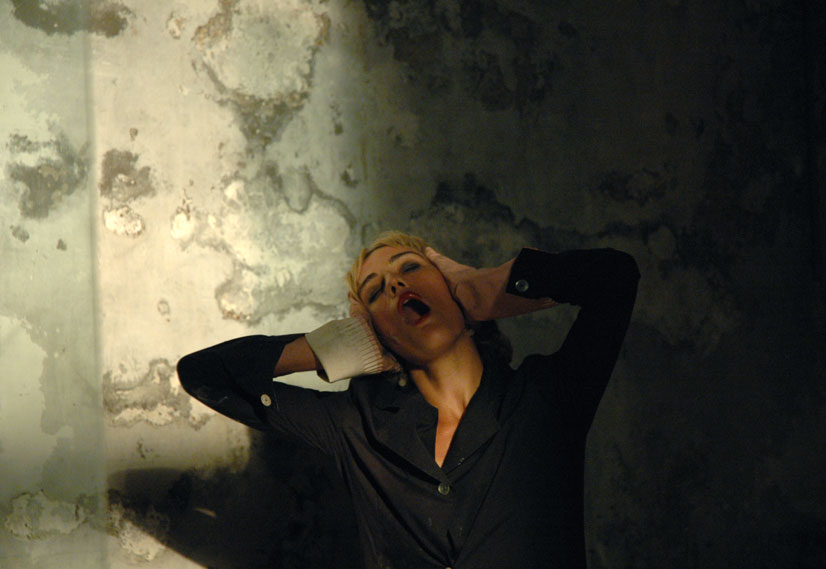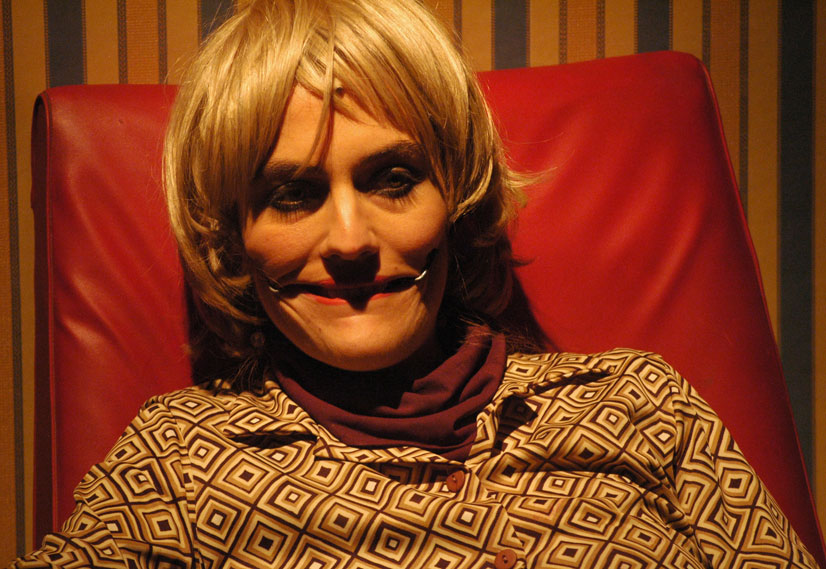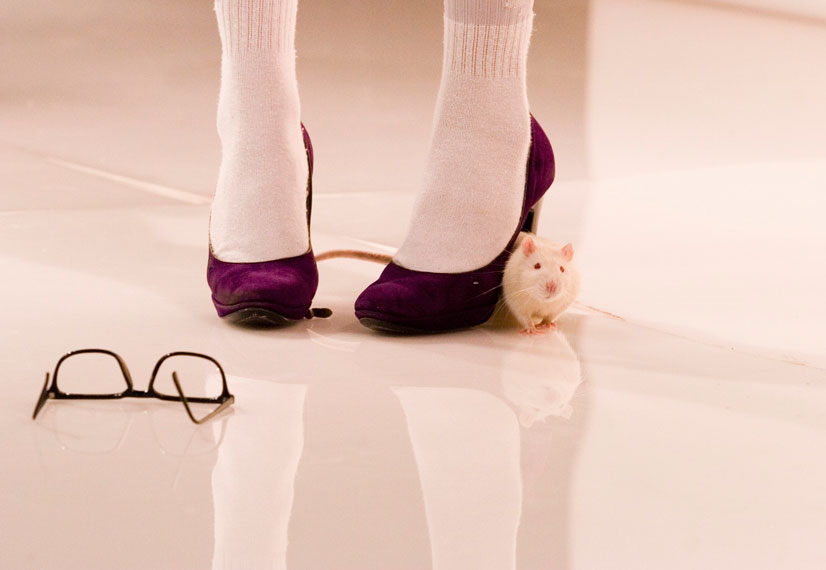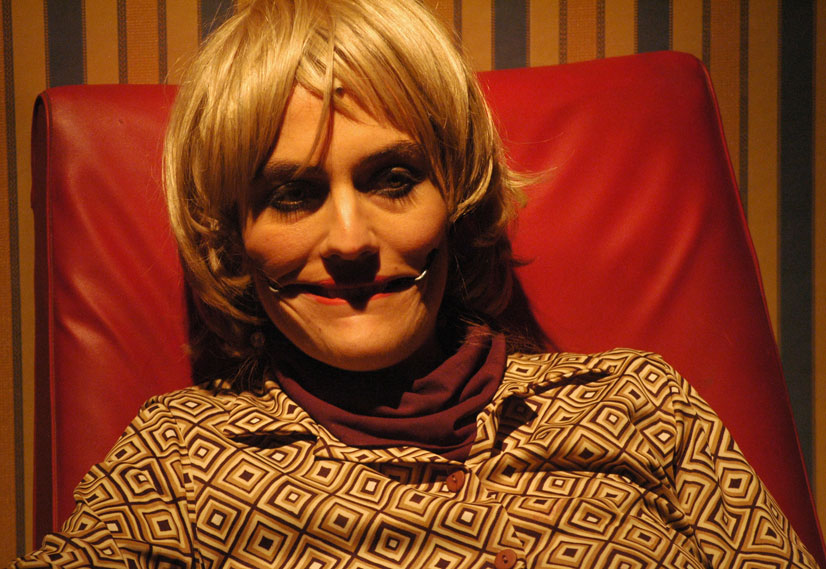
©Federica Giorgetti
Note di regia
What we cannot change, at least we have to describe it. Rainer Werner Fassbinder
It is from the chaos of garbage and rubble which closes The Guest (an after-the-bomb) that we once more look at our today. After the Pasolini project, the last desperate Pasolini of Oil and Salò, we are setting out on a new itinerary which delves into a series of awkward repressions. Bringing down the wall ushered in “L’età dei crolli” [The Age of Collapses] – to mention a fine book by Marco Belpoliti – and the spectre of nazism and racial purification is not as far off as one might be led to believe… “Hitler survived!” was also shouted in Twin Rooms! You need only carry out a simple search on the Internet to realise with horror just how many thousands of neo-nazi sites there are in the world, with online sale of icons, flags, music and ambiguous objects: an immense market that overlaps with those of sadomasochism and snuff-movies… Often these sites are based in the USA where militarism is ruinously grafted onto the ideals of country, race and family, arrogantly lauded by the current contemptible president (at that time Bush).
The drone of bombers, once more flying above us, disturbing and amplified, heading for Iraq, forgetful of the atomic mushroom’s blinding glare… and the Italian government approves, signs, imitates, gets into step: the drone of bombers is deafening in Italy, backed up and undersigned by a new pope, equally obscurantist and mediaeval. We are desperate and worried about the fate of this country in artistic and cultural decline, and we humbly ask for help, though we know that perhaps there are no possible islands immune to the daily fascism that governs power relations, even in the enlightened context of theatre.
The project is our latest attempt at resistance here, and it is not by mere chance that it has been hosted only by anomalous places and people who, in their own way, “resist”, by risking and attempting to implement non-standardised programmes. So it is evident how these Little Episodes came into being, imbued with discomforting malaise: we are not interested in arriving at a show – it isn’t the time for entertainment – preferring to work on the edge of the abyss, moving lightly, always ready for flight (and guerrilla warfare). It’s a project that implicitly sounds like farewell to an Italy – under a regime – in which survival is becoming impossible for independent experimental companies like ours, and not only due to financial reasons! We’ve even left our rehearsal space to set up a nomadic formula consisting of an endless series of consecutive residences: we’ll settle into places like a climbing plant, like a virus, like invasive guests, interacting with the interiors, changing with the spaces and in relation to the projects into which we are inserted.
With bits and pieces and cheap fragments we simulate an ordinary normal interior made up of objects and things that are absolutely recognisable, and we make them tremble… we go seeking the signs, the traces of fascism still predominant precisely in the lowly, in the everyday, because “… the germs that feed authoritarian ideologies make their nests in the habits of ordinary domestic life…” ¹, in the dust swept beneath the carpets, behind the crucifixes and lace, in couple relationships or those between fathers and children, employer and employees and … between theatre directors and actors. Parallel to the theatre work we are creating an interminable video-catalogue of brief interviews with young actors, collected during a workshop that goes together with the artistic residence. We ask them to describe, in front of a camera, a “little episode of everyday fascism” either undergone or witnessed: disturbing stories are emerging, also and above all with regard to the relativism which the term “fascism” – the workshop’s central theme – has taken on today.
Onstage there are only two actors, Ian and Myra, (Dany Greggio and Nicoletta Fabbri), protagonist-pretexts, drawn from Fassbinder’s 1969 text Pre paradise Sorry Now which was inspired by the actual doings of two English serial killers arrested in 1966, “The moors murderers“, a pop icon of the “killer couple”… (Myra died in jail in 2002 while Ian, serving a life sentence, is still being force-fed). In the course of our previous residences we slowly decided to give up the idea of staging the text. We extrapolated a few fragments of dialogue and description that flow into a de-structured and evocative stage event. This shifts between the biographies of the two English psychopaths, carried away by fascination with nazism and all forms of subjugation and intolerance – typical of lower middle class social frustration – and the many Ians and Myras who live in semidetached suburban houses and who go to work every day nursing a brutal, irrational hatred that is always projected onto some new enemy. Shortly after their arrest, then, Fassbinder wrote a theatre piece that even maintains their real names and slavishly follows the events of their lives up to the appearance of Jimmy – who was actually called David Smith – a relation of theirs who was made to witness their sixth murder in order to be “instructed”… The next day he reported them to the police. This third actor, the voyeur, is selected in each town from those taking part in the workshop, precisely because Jimmy – the one who mutely witnesses terrible events – could be any one of us.
The work remains constantly in the balance, open, lying among places and things. It is changeable and fragile, like the images projected onto the dust-covered Plexiglas screens which can be cancelled with a gesture of the hand or an over-intense light. It can be adapted to any kind of space, from an actual apartment to a theatre, as long as the latter is stripped of wings and curtains. We refuse only to do it on Italian style stages. In such cases, as happened at the Teatro Petrella in Longiano, the public too are on stage, sharing with the actors that domestic place in which the public all too often end up by recognising themselves, discovering in the actors’ ridiculous delusions of grandeur much of their own normal behaviour, even if it is increasingly easy, sorry, to attribute blame and weaknesses to someone else.
¹Wilhelm Reich. Mass Psychology of Fascism (Italian translation: Psicologia di massa del fascismo, Einaudi, Turin, 2002 )

